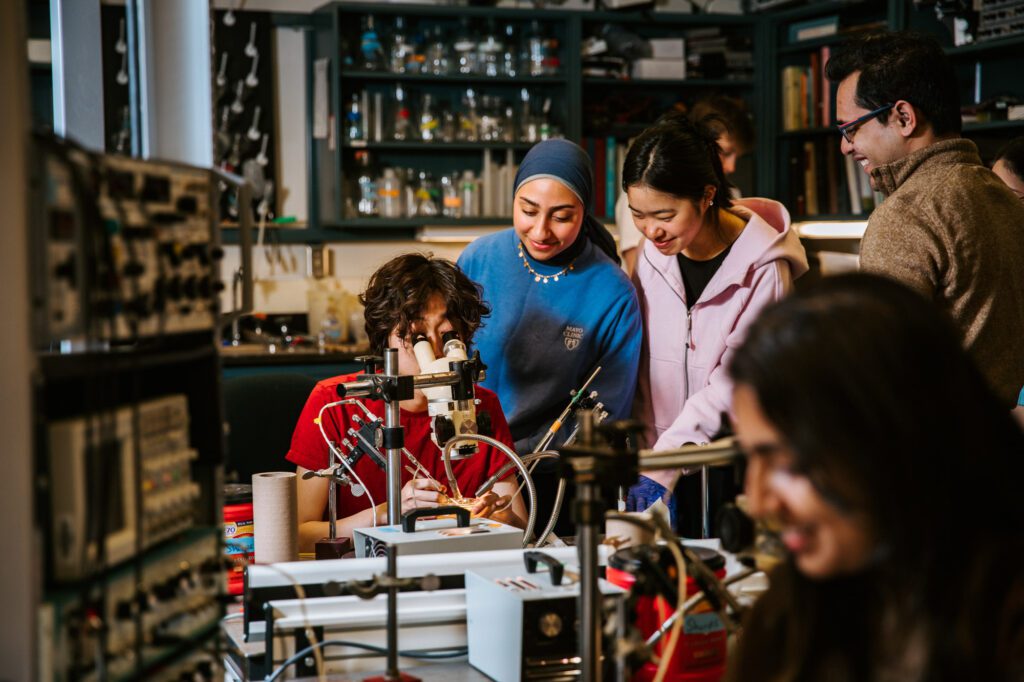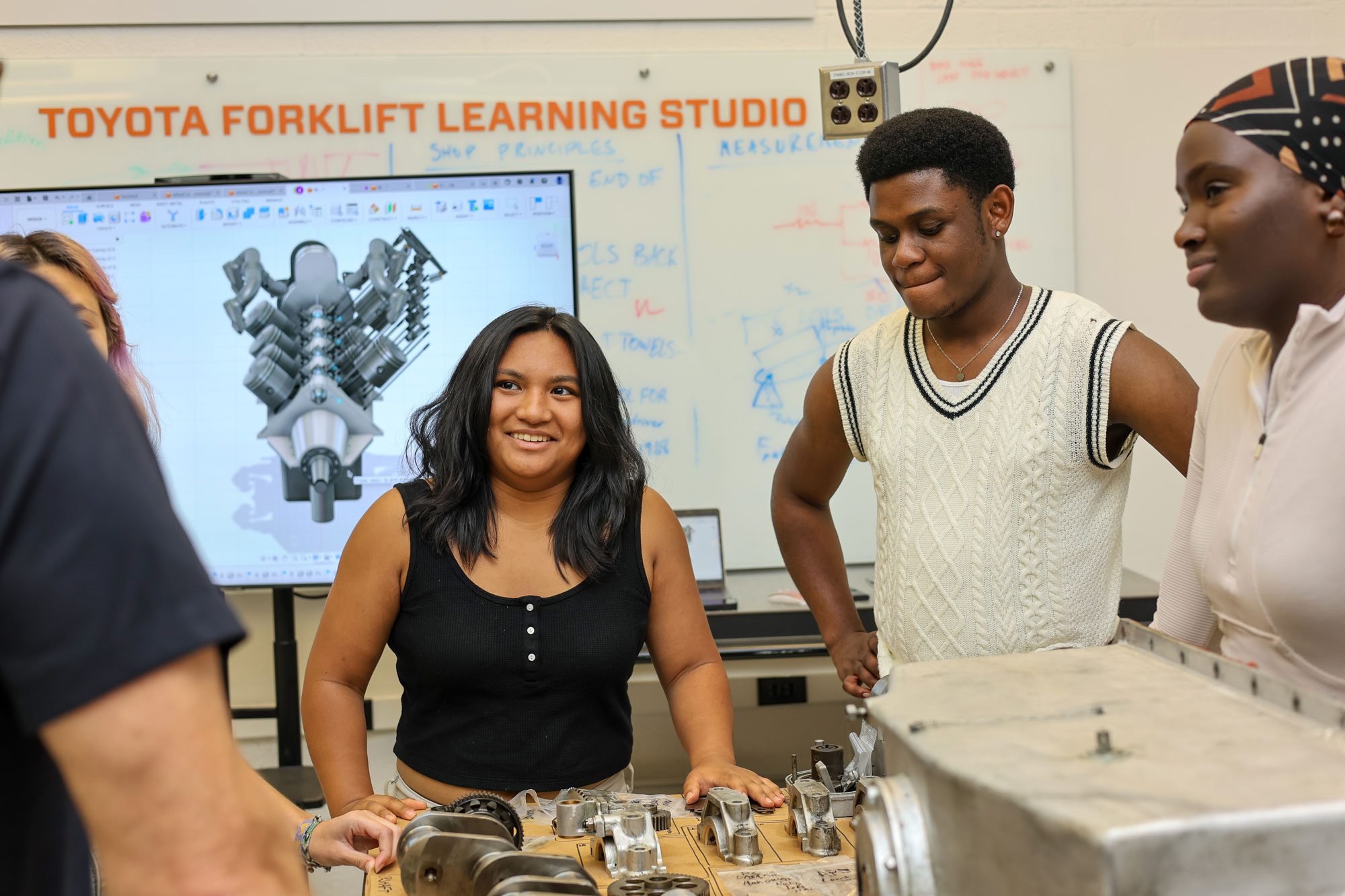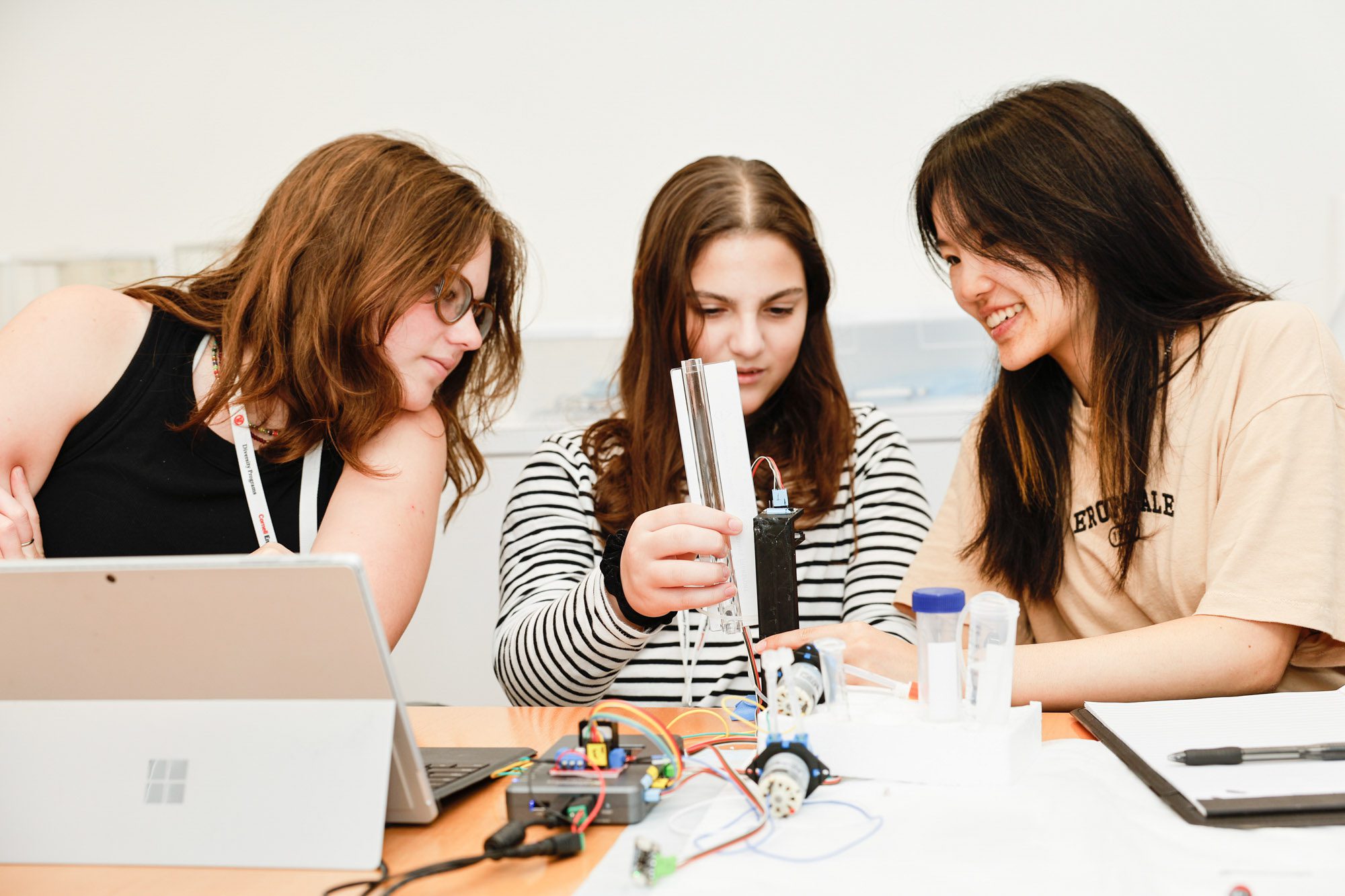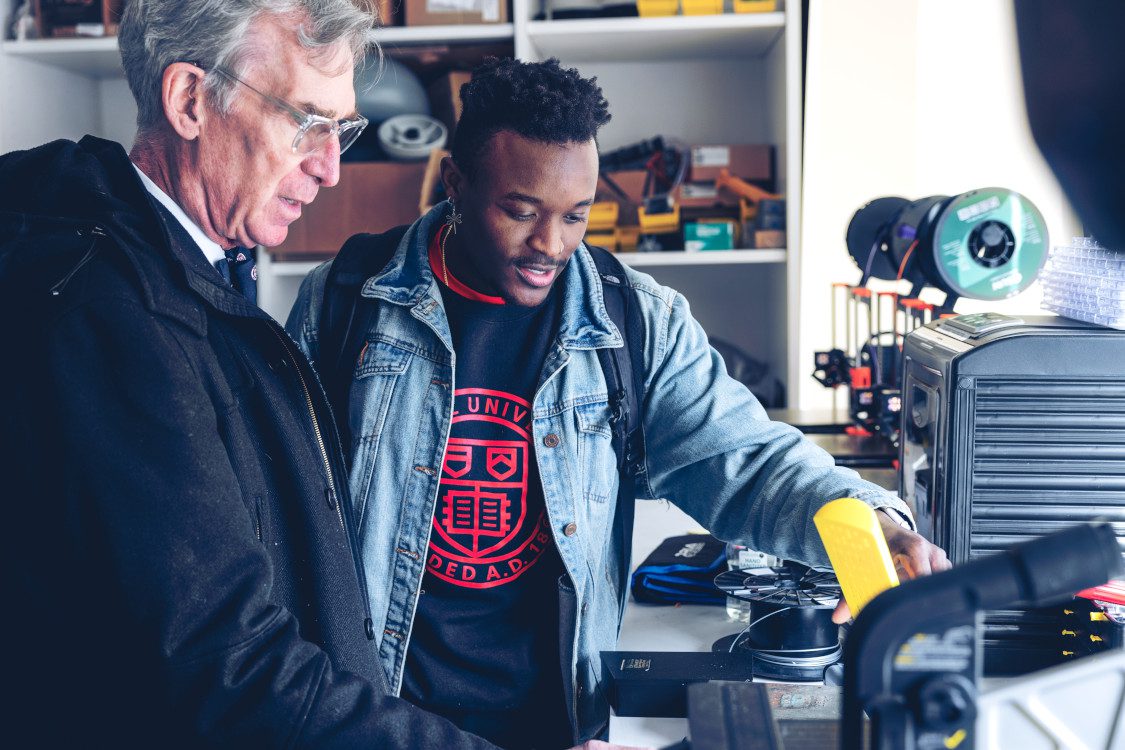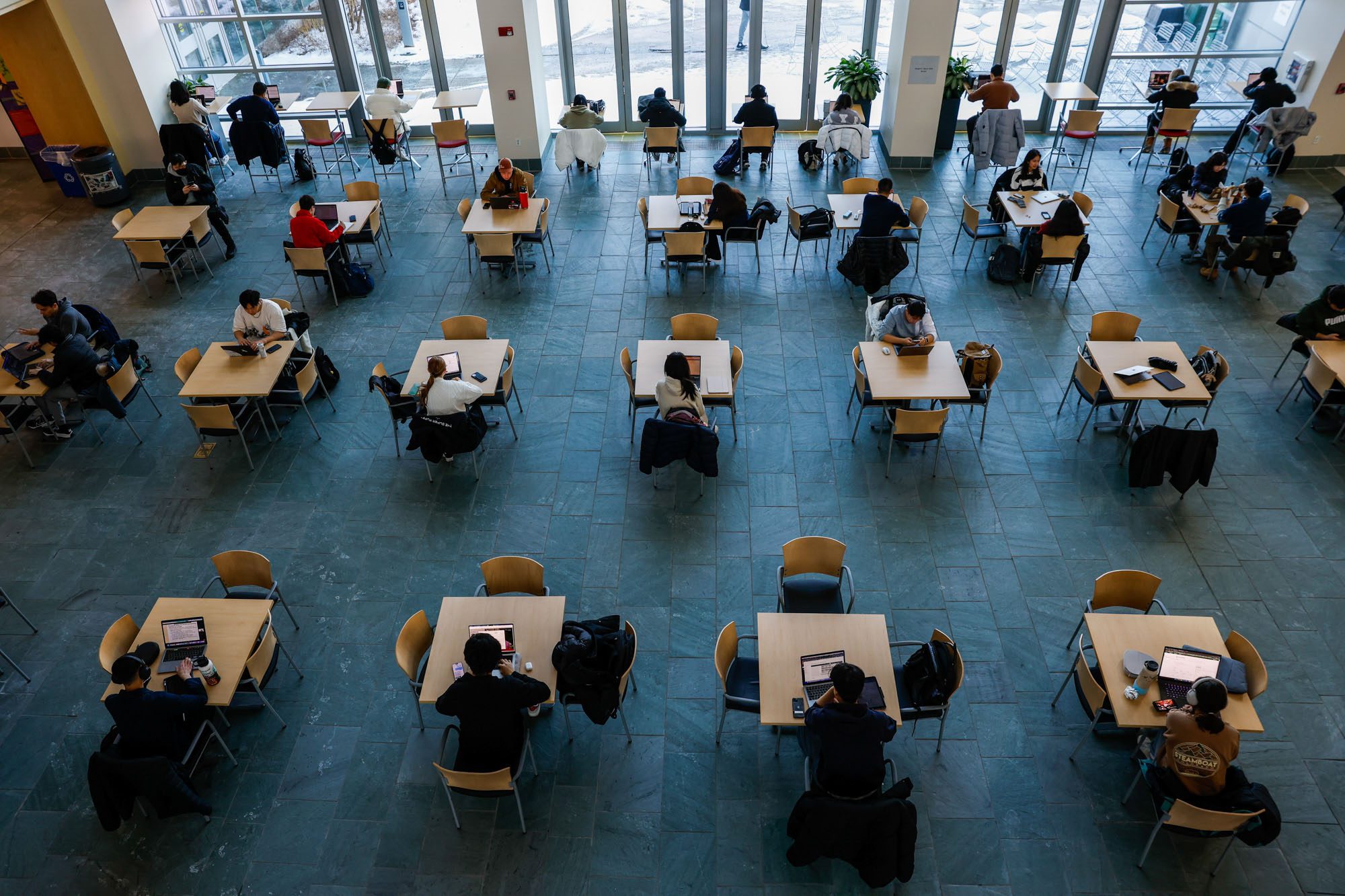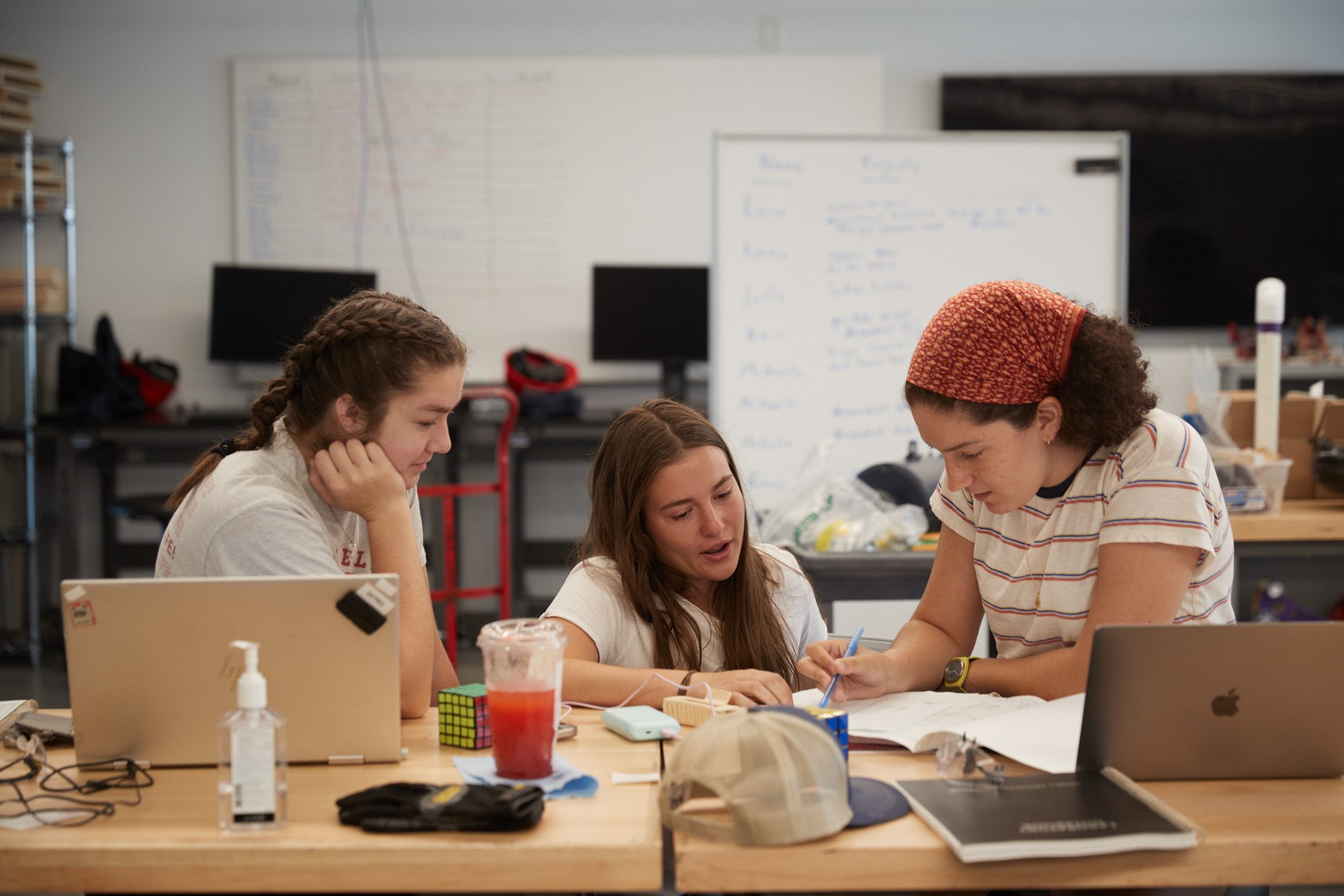Page Contents
Before You Begin
Be sure to prepare for the application process, including learning as much as you can about Cornell Engineering
-
![High school student uses lab equipment as two other students watch]()
How to Prepare in High School
Learn how you can demonstrate that you are prepared for the Cornell Engineering curriculum.
-
![Bill Nye and Smith Charles discuss mechanical equipment]()
Explore Engineering
Get to know our programs, our community, and the opportunities they offer.
-
![Many students work at tables in Duffield Hall atrium]()
Tours and Information Sessions
Come see us and watch our digital information sessions.
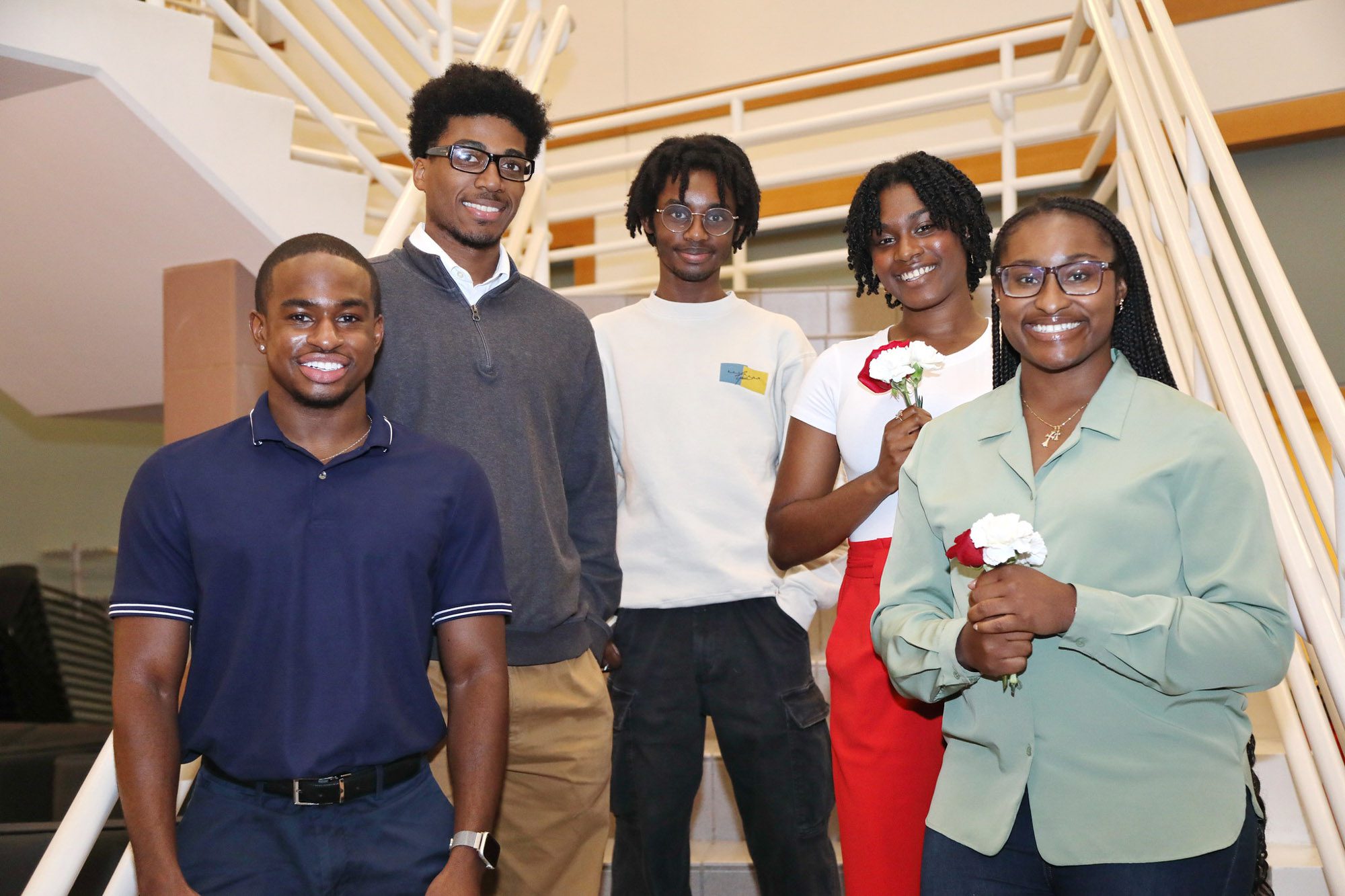
Class of 2028 Admissions Statistics
-
Applications Submitted
18,079
-
Class Size
838
-
Early Decision Enrollment
53.7%
-
First-Generation Students
16.2%
Start Your Application Journey
The first step is determining what kind of applicant you are.
-
![Students work together]()
First-Year Applicants
Individuals with a high school diploma or GED who have earned fewer than 12 college credits should apply as first-year applicants.
-
![Two students smile working together outside Rhodes Hall on grassy lawn]()
Transfer Applicants
Students who have earned more than 12 credits at another accredited college or university since graduating from high school should apply as transfer applicants.
-
![Students stand in field with arms around each other, smiling at photographer taking their photo]()
Additional Info for Specific Populations
Applicants from certain backgrounds — including but not limited to homeschooled, United World College, Native and Indigenous, military veterans, first-generation, and/or low or moderate income students — may want to review specific application guidance.
Contact Cornell Engineering Undergraduate Admissions
-
Address
Cornell Engineering Admissions
Rhodes Hall, Room 173
Ithaca, NY 14853 -
Phone
607-255-5008
-
Email
- General Inquiries: engr_admissions@cornell.edu
- Transfer Application Inquiries: engr_trans_adm@cornell.edu
-
Office Hours
8:30 a.m. to 4 p.m.
Monday through Friday (except University holidays and closures)
